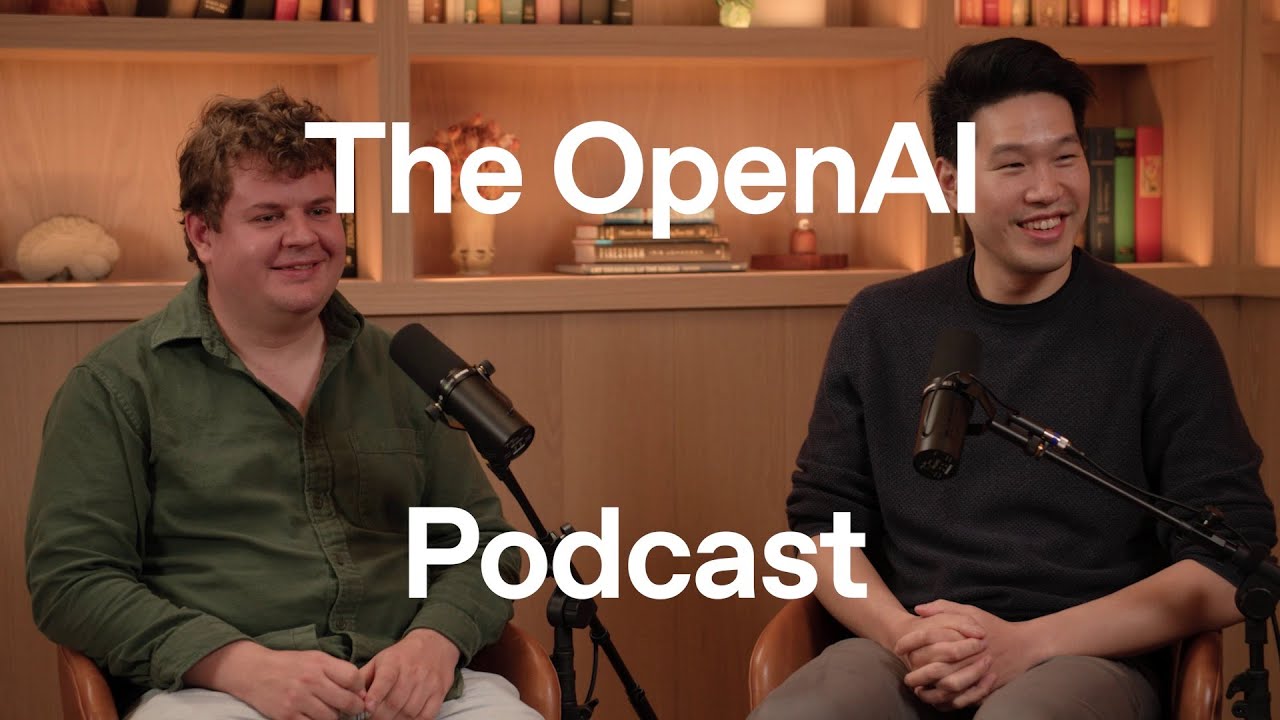In the OpenAI Podcast Episode 2, Mark Chen and Nick Turley discuss the unexpected rapid success of ChatGPT, the challenges faced during its launch, and the continuous improvement approach driven by user feedback that shaped its development. They also explore advancements in image generation, coding capabilities, and the future of AI, emphasizing adaptability, curiosity, and AI’s potential to democratize expertise and transform various industries.
In the OpenAI Podcast Episode 2, Andrew Mayne hosts a conversation with Mark Chen, Chief Research Officer, and Nick Turley, Head of ChatGPT, discussing the early days and rapid rise of ChatGPT. They reveal that the name “ChatGPT” was a last-minute decision, chosen for simplicity over the more technical “Chat with GPT-3.5.” The initial launch was met with uncertainty internally, with doubts about whether the model was ready or if the world would respond positively. However, within days, the team realized ChatGPT was going viral and had the potential to change the world, surpassing all expectations and significantly raising OpenAI’s profile.
The podcast delves into the challenges faced during ChatGPT’s launch, including infrastructure constraints like running out of GPUs and database connections, leading to frequent downtime initially. Despite these hurdles, the team prioritized rapid feedback from users to iteratively improve the model and product. They emphasize the importance of real-world deployment and user interaction in refining AI capabilities, safety, and usefulness, moving away from traditional hardware-like one-time launches to a software-like continuous update model. This approach allowed them to quickly address issues such as the model’s tendency to be overly sycophantic, balancing user satisfaction with long-term utility.
Mark and Nick also discuss the evolution of OpenAI’s image generation technology, highlighting the breakthrough with ImageGen, which provided high-quality, one-shot image generation that surprised even the team. They note the shift from conservative restrictions in earlier models like DALL-E to a more balanced approach that allows greater user freedom while managing safety concerns. The conversation touches on the complexities of handling sensitive content, such as faces in images, weighing the benefits of user freedom against potential misuse, and the importance of transparency in AI behavior and policies.
The discussion then moves to coding capabilities, tracing the development from GPT-3’s surprising ability to generate code to specialized models like Codex and Code Interpreter. They explore the concept of agentic coding, where models asynchronously work on complex tasks over time rather than providing instant responses. Both hosts highlight the diversity of coding needs and the importance of building tools that scale with model improvements, catering to both professional developers and broader audiences. Internal adoption of these tools at OpenAI serves as a valuable feedback loop, helping refine workflows and productivity.
Finally, the podcast addresses the future of AI and the skills needed to thrive alongside it. Both Mark and Nick stress curiosity, adaptability, and agency as key traits for success in a rapidly evolving field. They envision AI as a powerful assistant that democratizes expertise, enhances productivity, and transforms various domains like healthcare and education. The conversation concludes with reflections on emerging AI interaction paradigms, such as asynchronous workflows and voice interfaces, and the excitement about AI’s potential to accelerate scientific research and solve complex real-world problems in the near future.
